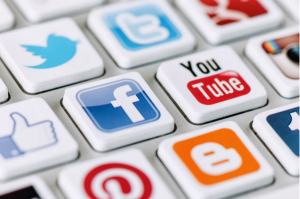
According to a recent report in the Wall Street Journal, L’Oréal SA, the world’s largest cosmetics maker, reported flat sales
for the first quarter of 2009 as consumers shied away from its luxury
skin creams and shampoos in favor of its cheaper brands. The maker of products ranging from Giorgio Armani perfume to Lancôme
skin cream and Maybelline eye shadows said sales increased 0.3% to
€4.37 billion ($5.83 billion) in the first three months of 2009.
Jean-Paul Agon, L’Oréal’s chief executive, said that he would not offer
specific guidance for the year but that results would “improve” during
2009.
After accounting for the effect of currency fluctuations, sales fell
9.3% in Western Europe and 5% in North America. This shortfall was
partly offset by an increase in revenue in Asia.
Sales at L’Oréal’s luxury cosmetics division fell, while sales of its consumer drugstore lines increased slightly.
This is an unfortunate turn for L’Oréal which has always been known for its commitment to scientific research and exceptional financial results.
In fact, you might say there is an unresolved tension in its culture between creativity and business results. This tension is visible even on its website. If you read about the “profiles they are looking for” under the marketing category, here’s a description you’ll find:
Creativity, imagination, openness to new ideas – coupled with the highest professionalism.
• Project-oriented, natural team player, at ease working with others in an environment of entrepreneurial challenge.
• Global-minded, flexible, able to juggle multiple priorities.
• Strong analytical thinker, excellent communicator.
You have a keen eye on the latest fashions, a finger on the pulse of emerging consumer and cultural trends. Highly developed interpersonal skills, a passion for results. The personality to make a difference.
Diagnosis: L’Oréal – When East dominates West…
For the past few years I have been working with
L’Oréal to change this dynamic.
The challenge: help marketers and managers develop a sensitivity to the creative nature of the beauty
product development process and specifically gain an understanding
for the process of research and development.
When the cosmetic group decided to develop a world wide talent appraisal process Sir Lindsay Owen Jones articulated the need to develop a competence key to the success of the group in the eye of the CEO, and that is: sensitivity to métier. What Sir Lindsay Owen Jones was aiming for was to develop a global, shared understanding for beauty products development, for L’Oréal customers, and for a number of other confidential important characteristics identified by the CEO as key factors for success in the beauty industry.
The Human Company was commissioned to research how to define this specific aptitude and how to develop it and train for it. We developed an international training track that is seen today as one of the most successful and inspiring training program available at L’Oréal.
Our approach consists in helping marketers understand how to engage and inspire creative people to contribute the best of their creativity. We used the The Intuitive Compass™ to highlight the tension between results-driven managers and creative teams.

Our analysis: L’Oréal has a product innovation driven business model whereas most of its competitors have often a market-driven model. The company believes in scientific innovation to promote growth. Its founder was a scientist. It is how L’Oréal sustained 20 years of double-digit growth and became the world leader in cosmetics. There is, as I mentioned earlier, a tension in its culture between creativity and business results.
Results: We helped L’Oréal’s teams understand the perspective of the different teams. The creative teams learned about the business aspects they had neglected, while the managers and marketers were helped to understand the creative process. The bridge is intuitive intelligence. Our training program is seen today as one of the most successful and inspiring training program available at L’Oréal. (Average rating: 19.5/20) because it is very relevant with the innovation imperative prevailing in the beauty Industry, articulated by the CEO Jean Paul Agon in his mandate.
 Excerpted from Francis Cholle’s The Intuitive Compass, Jossey-Bass
Excerpted from Francis Cholle’s The Intuitive Compass, Jossey-Bass



